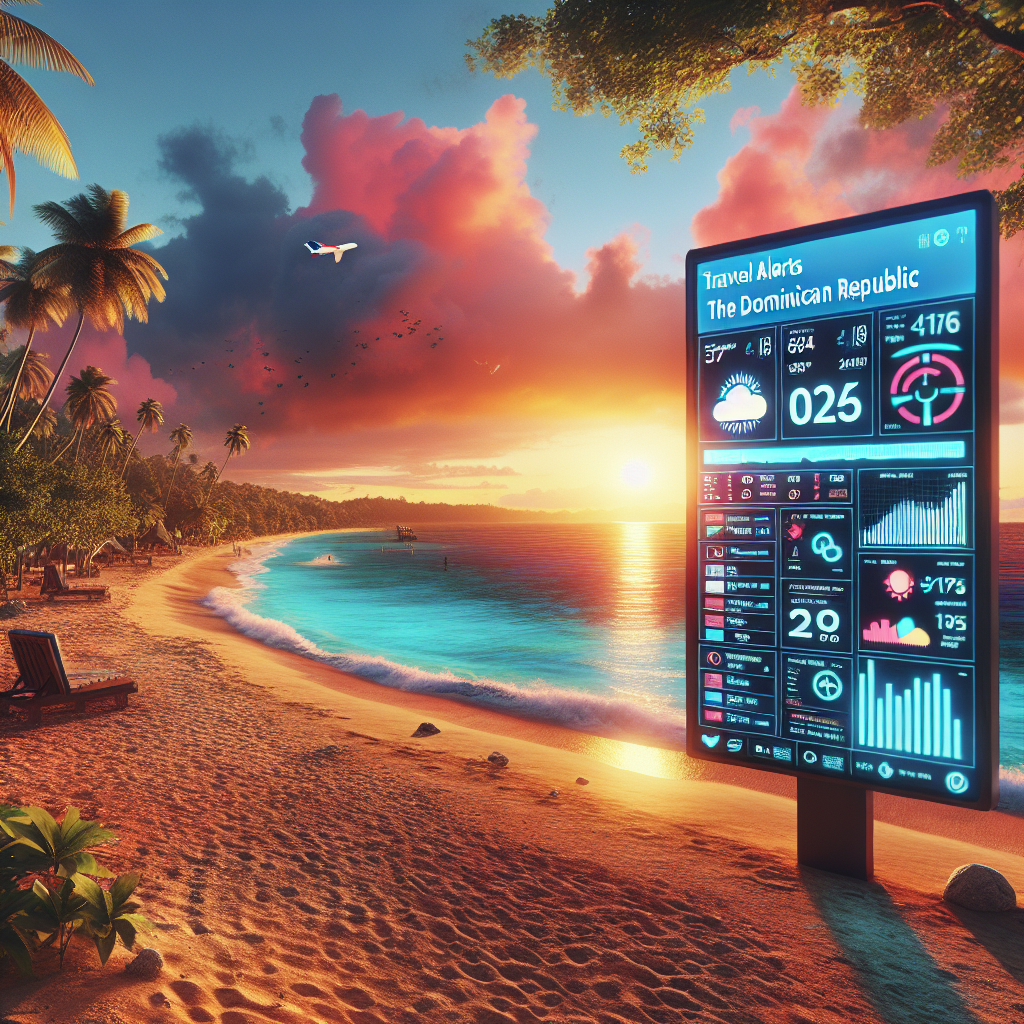Introduction
It is important to be aware of any travel alerts in place when planning a trip. Becoming aware of the risks involved in your trip, whether you are traveling on business or for pleasure, can help to ensure that it is a safe and enjoyable experience.
Current Travel Alerts
As of the most recent update, there were no specific travel warnings for the Dominican Republic. It is still advisable to check for updates prior to your trip as conditions can quickly change.
Health and Safety
It is important to consider your safety and health when traveling in the Dominican Republic. Drink bottled water and avoid street food. Also, take precautions to prevent mosquito-borne diseases such as Zika or Dengue fever.
Natural Disasters
The Dominican Republic can be affected by hurricanes and tropical cyclones, particularly during the Atlantic hurricane season between June and November. In the event of severe weather, it is best to monitor weather reports.
Crime
As with any destination, crime is a possibility in the Dominican Republic. Avoid displaying valuables at night and use ATMs with caution. It is also advised to only use licensed cabs and avoid walking in unfamiliar areas.
Political Climate
Demonstrations and protests are possible in the Dominican Republic, but they are rare. Avoid these gatherings, and be aware of any possible disruptions to your plans.
Travel Advisories
Although there are currently no travel advisories for Dominican Republic, you should register with your embassy before you travel. This will ensure that you get important updates and assistance if an emergency occurs.
Transportation
It is important to use reputable transport services when traveling in the Dominican Republic. Be careful when driving as road conditions may vary and traffic laws are not always strictly enforced. Be sure to buckle up, and avoid distractions when driving.
Medical Facilities
It is important to know the location of the nearest healthcare facility in the event of an emergency. While many major cities, such as Santo Domingo or Punta Cana, have modern hospitals and medical services, some remote areas may not. Consider purchasing travel insurance to cover medical evacuation in the event of serious illness or injury.
Local Customs
When visiting the Dominican Republic, it is important to respect local customs and tradition. In the Dominican Republic, it is customary to greet people with a handshake, or a kiss of the cheek. Modest clothing is also recommended, particularly in religious settings. Ask permission before taking pictures of locals and their property.
Language Barrier
It is important to learn some basic phrases in Spanish before you travel. Although many people in tourist areas are fluent in English, knowing some basic phrases can help you communicate better with locals.
Emergency Contacts
It is important to know who to call in an emergency. The Dominican Republic’s emergency number is 911. This can connect you to police, fire or medical services. You should also have the contact details of your embassy or Consulate on hand.
Currency Exchange
The Dominican Peso is the official currency of Dominican Republic. Although US dollars are widely used in tourist areas, you should exchange your money into pesos to get a better deal. ATMs are widely available but be aware of fees and exchange rate.
Travel Documents
Be sure that your passport is valid at least six months after your intended stay in the Dominican Republic. US citizens are not required to obtain a visa if they stay up to 30 consecutive days. However, longer stays may require either a visa extension or a visa. Consult your embassy or consulate to find out the entry requirements.
Internet and Communication
In the Dominican Republic you can easily stay connected to your family and friends with Wi-Fi in many hotels, restaurants and cafes. Consider buying a local SIM for your phone in order to make cheaper calls and access data services.
Cultural Sites
The Dominican Republic has a wide range of cultural attractions and sites, including historic churches and museums. It also boasts colonial architecture. Visit the UNESCO World Heritage Site in Santo Domingo, and discover the vibrant local markets as well as the artisans of towns like Puerto Plata or La Romana.
Beach Safety
The Dominican Republic has beautiful beaches. However, it is important to take precautions while swimming or engaging in water sports. Beware of strong currents, rip tides and only swim in designated areas with lifeguards.
Environmental Conservation
As a responsible tourist, it’s important to respect the Dominican Republic’s natural environment. Avoid littering and use biodegradable sunblock to protect coral reefs. Also, support eco-friendly tour companies that promote sustainable practices.
Local Cuisine
Enjoy the flavors of Dominican food, which combines Spanish, African and Taino influences. Taste tropical fruits like mangoes and papayas and classic dishes such as mofongo and sancocho. Explore street food vendors to discover authentic local flavors.
Shopping Tips
Visit local markets and shops to bring home souvenirs and gifts. You can find souvenirs such as handmade crafts, jewelry and cigars. Remember to haggle and support local artisans.
Weather Patterns
The Dominican Republic has a tropical climate, with warm temperatures all year round. The Dominican Republic has distinct wet and dried seasons. The wettest months are usually between May and Novembre. Pack light clothing and insect repellents to keep comfortable on your trip.
Conclusion
You can enjoy a safe trip to the Dominican Republic by staying informed and taking precautions. Be sure to respect the local customs and be aware of your surroundings. Also, be prepared for any unexpected circumstances that may arise. Your visit to this beautiful Caribbean destination will be unforgettable if you plan well and have a positive attitude.
